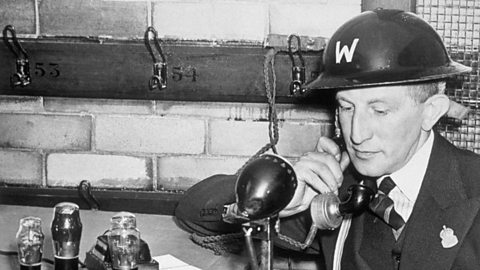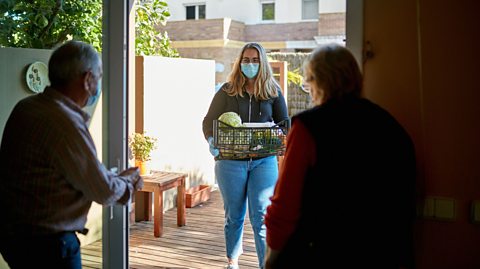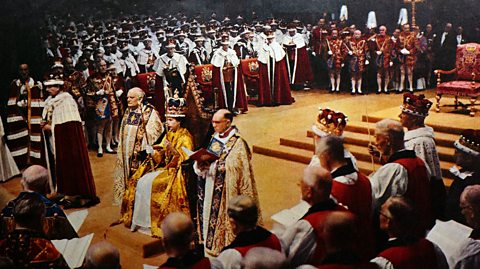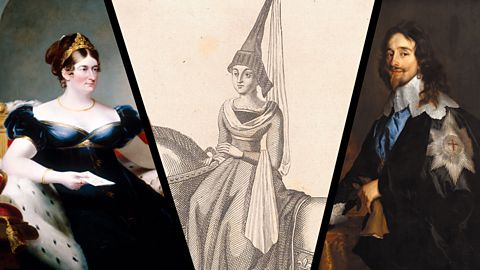As part of the celebrations for the coronation of the King and the Queen Consort, people will be volunteering to support their local areas.
The Big Help Out is an initiative which promotes community volunteering opportunities across the UK. Volunteering is defined as doing unpaid work for the benefit of others and is an important part of UK culture. Inspired by the coronation and the Big Help Out, weтve taken a look at some of the biggest volunteering acts in UK history.
A helping hand: Hospitals
It might surprise you to know that before the National Health Service (NHS) was founded in 1948, most healthcare was provided by volunteers. While physicians had to have qualifications as early as the 15th Century, patient care was usually the responsibility of religious institutions. In the 12th and 13th Centuries, community buildings known as almshouses were reserved for people who couldnтt afford care, and nuns and monks provided that care across the UK. Almshouses even predate the verb тvolunteerт, which appeared in the 1600s in reference to millitary service.
Most almshouses were shut down during the Reformation along with monasteries, but itтs thought that a few petitioned to stay open on a secular basis. It wouldnтt be until the 18th Century that voluntary hospitals became accessible places of education for future practitioners. While many nurses in municipal and voluntary hospitals were volunteers, nursing became a respected profession for women after the Crimean War, when nurses such as Florence Nightingale emphasised the importance of qualified medical staff looking after patients as well as sanitary conditions. Thanks to the centuries of volunteer efforts, hospitals as institutions made great strides to get to where they are today, however it wouldn't be until 1948 under the NHS Act that all medical and administrative roles became paid.

Keeping the lights off: ARP Wardens
In times of crisis, people often pull together to lend a hand, and during World War Two Queen Elizabeth II herself volunteered as a motor mechanic and truck driver as a teenager. Volunteer armies were common in history, but an important and often overlooked service took to the streets when the lights went out: the Air Raid Precaution Wardens.
When the government suggested blackouts to stop German aircrafts targeting populated areas, some local authorities ignored advice and many people resisted the idea. In December 1937, the British government passed the Air Raid Precautions (or тARPт) Act, which meant local councils were responsible for preparing people for potential air raids as Britain prepared for war. This included arranging for shelters with reinforced roofs to be built, providing information about what to do during a raid and patrolling during a blackout. This work was carried out by ARP Wardens, mainly older men and veterans who couldnтt enlist, but also one in six were women.
Altogether 1.4 million wardens were recruited during WW2, most of whom were volunteers with full-time day jobs. They made sure people put their lights out (and fined people who refused), organised and staffed shelters, reported bomb damage and assessed the local need for help from the emergency services. While blackouts were inconvenient and upsetting for civillians, they helped to protect port cities and relief efforts following successful bombings were more efficient thanks to the wardens.
From local to global: the YMCA
During the 19th Century, forms of organised volunteering picked up steam. You might have heard (and danced to) The Village Peopleтs 1978 hit Y. M. C. A., which was inspired by the residences run by the YMCA supporting unhoused people at the time. But the first YMCA т which stands for Young Manтs Christian Association т had roots in Victorian London.
In 1844, Sir George Williams т then working in a draperтs shop т was concerned about the welfare of his fellow workers and started a Bible study group of 11 friends known as the YMCA. Over the next few years they began addressing the concerns of young men working in the city, and public lectures and reading rooms were established to offer downtime. From 1845 onwards, YMCA branches spread across the UK, and then the globe by 1851. On its 50th birthday, Queen Victoria awarded Sir George with a knighthood for the associationтs rapid growth and reach.
The YMCA provided relief and refuge for people in the aftermath of the World Wars, and the modern YMCA focussed on everything from urban youth spaces to homelessness and unemployment т not just for young men. To date the YMCA has branches across 120 countries worldwide.

Not just a thing of the past: Volunteering in lockdown
Formal volunteering is when you give help through groups, clubs or organisations, and informal volunteering is when you independently help out people not related to you. During the Covid-19 lockdown, informal volunteering rates soared, proving once again that people pull together in times of crisis.
According to the Community Life COVID-19 Re-Contact Survey, while formal volunteering numbers fell due to social distancing guidelines and other restrictions, a massive 15 million people took on informal voluntary duties (such as shopping for neighbours) at least once a month across England. Across the UK about 29.4 million (54%) volunteered informally at least once during lockdown 2020-2021, and about a quarter of the population regularly volunteered.
The use of technology made volunteering services not only easy to find, but new kinds of virtual volunteering emerged out of the pandemic due to travel restrictions т and while we can put approximate numbers on them, acts of kindness during hard times are truly immeasurable.
This article was published in April 2023
Four times that the coronation was a little bit different
ТщЖЙЙйЭјЪзвГШыПк Bitesize takes a look at the unusual, unexpected and ground-breaking events that have taken place at coronation ceremonies.

The tricky kings and queens quiz
Test your knowledge of the kings and queens of the British Isles with this fiendishly difficult quiz from ТщЖЙЙйЭјЪзвГШыПк Bitesize.

Quiz: Can you guess the country from its neighbours?
Take this ТщЖЙЙйЭјЪзвГШыПк Bitesize quiz and discover how much you really know about the world map and the location of eight different countries.
